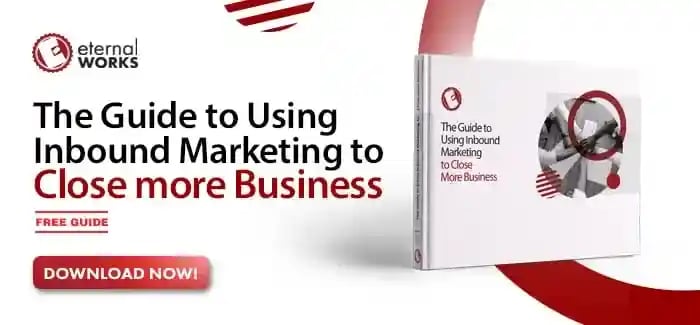At the heart of every sale is your most important asset: the customer. That’s why employing customer relationship management (CRM) software is the key to boosting sales and increasing revenue.
A CRM is a software system that helps businesses keep track of their customers to help improve relationships and increase sales.
CRM software tracks information such as demographic data, customer exchanges, digital footprints on your site, and tailored notes about each customer.
This enables multiple people in your organization to access key data about your customers that will help make their interactions with the company as streamlined and helpful as possible—while also improving trust in your brand.
Why your company needs a CRM for its sales process
The more you know about your customers, the better you can tailor their experiences. You’ll know their common pain points and frequently asked questions and receive important feedback on your services for future reference.
Not only does this improve your customer satisfaction ratings, but you can also use this information to home in on your buyer persona.
As it turns out, having expectations of your target audience and seeing who is actually buying from you are two different things. But when you can fine-tune your buyer persona using carefully curated information accumulated by a CRM, you can improve customer loyalty and satisfaction even further.
In this way, CRM is mutually beneficial to both your customers and your sales team.
Examples of successful CRMs
1. HubSpot CRM
HubSpot is an inbound marketing CRM that collects data on organic leads and how they make the journey from lead to sale.
This helps to focus content based on customer preference and helps you research key SEO strategies so that your target audience finds you.
2. Zendesk
Zendesk incorporates CRM data with customer support to make sure customers receive a streamlined service tailored to their needs. Using Zendesk, employees can quickly access data on each customer and see previous conversations to make sure customers aren’t repeating themselves unnecessarily.
3. Salesforce
Salesforce uses a centralized dashboard to help employees access key customer data when needed. Salesforce CRM is used to inform marketing strategies, improve sales pitches, and enhance the customer journey, which leads to improved customer satisfaction.
What are the benefits of using CRM software?
Increased Customer Satisfaction
When you make customer journeys the heart of your mission, you build an environment of trust and loyalty. And when you show customers you care about them before, during, and—crucially—after a sale takes place, customer satisfaction skyrockets.
Better Upselling and Cross-Selling
When your customer base grows, your customers run the risk of becoming a faceless person in a crowd. And when customers don’t feel valued, they don’t feel loyalty to a brand.
It’s understandable that you can’t manually track thousands of customers monthly, which is exactly why you need a CRM to help you continue a personalized dialogue with your customers and follow through on your promises.
So instead of accidentally “ghosting” the buyer that bought one of your lesser-known products five months ago, you can use CRM software to ensure you’re sending follow-up emails that recommend similar products and offer valuable content based on their needs.
More Organized Sales Process
It takes many teams across a company to make a sale happen. From R&D to marketing to closing the deal, a cross-team approach is necessary for success. CRMs help streamline this process by giving everyone in the company access to the same customer data.
That means everyone is working to the same pain points, the same buyer personas, and the same sales goals.
Helps Generate Revenue
Humans have a notoriously short attention span. Depending on the study, it’s estimated that the average attention span is between eight and 12 seconds. In a consumer world that’s constantly oversaturated with brand options, repetition is the best plan for customer retention.
By using CRM to follow through on customer journeys and upsell, you consistently expose your customers to your brand, associating it with good experiences in the value you bring, and making it more likely for repeat business.
Increased Workflow Efficiency
Sending cross-department memos isn’t only time consuming; it’s also unreliable. Multiple teams within a company need access to customer data to produce the best results for the brand.
By using a CRM, everyone in the company has access to key data that can yield better results. And in an ever-expanding service where interactions happen all the time, having real-time updates available company-wide ensures everyone is up to date and no important information is missed.
What value can a CRM provide for your business?
Whether you have thousands of customers or you’re just starting to grow your customer base, CRMs help you collate key data to improve customer satisfaction and retention, leading to more sales and higher revenue generation.
The level of CRM and the amount you spend on it will depend on how big your company is. Obviously, the more data-dense the CRM, the better the ROI, but for smaller companies, you may not need all the bells and whistles at first. It’s important to match your needs to the offerings of each CRM to make sure you’re getting the most cost-effective option.
ROI after using CRM
Of course, CRM software would be a waste of money if it didn’t contribute to a significant ROI. In 2014, a grand-scale research piece on CRM ROI by Nucleus Research found the average ROI on CRM software was $8.71 for every $1.00 spent. This is an increase from $5.60 in 2011.
While no major research papers have been published since then, tech giant IBM predicts that in 2022, the ROI on CRM software could be as high as 245 percent when CRM strategies are implemented correctly.
Key takeaways
Customers are the center of your business and looking after them is always a good business choice.
By using a CRM, you can streamline the customer relationship process to make sure your customer gets the best service and your company gets the biggest ROI.



